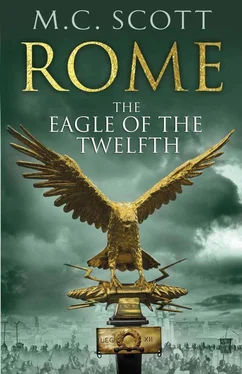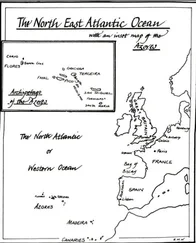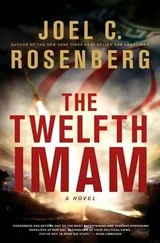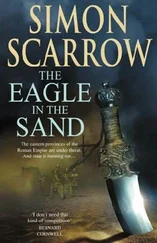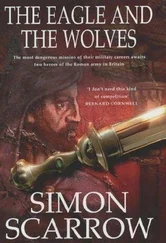M. Scott - The Eagle of the Twelfth
Здесь есть возможность читать онлайн «M. Scott - The Eagle of the Twelfth» весь текст электронной книги совершенно бесплатно (целиком полную версию без сокращений). В некоторых случаях можно слушать аудио, скачать через торрент в формате fb2 и присутствует краткое содержание. Жанр: Исторические приключения, на английском языке. Описание произведения, (предисловие) а так же отзывы посетителей доступны на портале библиотеки ЛибКат.
- Название:The Eagle of the Twelfth
- Автор:
- Жанр:
- Год:неизвестен
- ISBN:нет данных
- Рейтинг книги:5 / 5. Голосов: 1
-
Избранное:Добавить в избранное
- Отзывы:
-
Ваша оценка:
- 100
- 1
- 2
- 3
- 4
- 5
The Eagle of the Twelfth: краткое содержание, описание и аннотация
Предлагаем к чтению аннотацию, описание, краткое содержание или предисловие (зависит от того, что написал сам автор книги «The Eagle of the Twelfth»). Если вы не нашли необходимую информацию о книге — напишите в комментариях, мы постараемся отыскать её.
The Eagle of the Twelfth — читать онлайн бесплатно полную книгу (весь текст) целиком
Ниже представлен текст книги, разбитый по страницам. Система сохранения места последней прочитанной страницы, позволяет с удобством читать онлайн бесплатно книгу «The Eagle of the Twelfth», без необходимости каждый раз заново искать на чём Вы остановились. Поставьте закладку, и сможете в любой момент перейти на страницу, на которой закончили чтение.
Интервал:
Закладка:
Thus we came at last before Titus Flavius Vespasianus, propraetorian legate of the army of Judaea and governor of Syria, second son of a provincial tax collector and the man who had fallen asleep during Nero’s recital and lived to tellof it; the man who had left a trail of mud across the exquisite red and white mosaic of the floor.
Caesennius Paetus would never have done such a thing.
‘Welcome!’ A big, bluff man he was, with soldier’s hands, rough from years spent digging ramparts, or if not that, then something close. He wore mail over his tunic, rubbed gossamer-fine at the armpits and neck, with flecks of rust from a winter’s journey.
His face was a round ruin of wind and sun, red about the cheeks, even now, in the pleasant warmth of his study. His eyes were sharp, more like a wolf’s than a hound’s, so that they saw round the edges of a man, and knew the mettle of his soul. I found my own colour rising, remembering what I had thought of him.
He grinned. ‘Shall we get it over with? I am the younger son of a tax farmer, the mule-driver who got a governorship in Africa and came out of it broke, with vegetables hurtling about his ears. I served in Britain but got the south coast, where were only women hiding in stone forts, not the wild bear-warriors of the Eceni who cut the balls off their living prisoners and stuffed their throats with them before they died. It’s all true. Every word you have heard. Except’ — and he was not grinning now — ‘that they say I shall do to the legions of the east what Paetus did. That is not true at all.’
As he spoke, he came round the desk and leaned his hips against it with his palms flat on the oak behind him. His eyes were level with mine; grey eyes, red at the edges from the wind. They were not the eyes of a man who runs from his enemies.
‘I give you my word here and now, on the honour of my name, which matters to me if not to you, that I will never concede defeat to any man or any army. Not even to the King of Kings of Parthia. Especially not to him. You have seen Vologases, I understand?’
He was looking at Horgias, who said nothing, only slid his gaze sideways to me. And so I had to find my tongue from whatever place halfway down my throat it had lodged itself. ‘I have, lord,’ I said.
‘What did you think of him? No, I am forgetting myself. Sit, sit! And take some wine. Anodyces, if you would be so kind? Here. And here. And now, in comfort, what do you think of Vologases and his hold over his Parthian hordes?’
I’d had a few moments’ respite while the steward poured the wine and used them to sift through the truths and compare them to the slanderous rumours: that Vespasian was not bred of senate stock; that he was not corrupt, and so had failed to make a fortune in his time as a governor in Africa; that he had fought hard and well in Britain; that he was, in short, a man who actually stood a chance of leading the legions to victory against the Hebrews.
Of all that I had expected through the winter in Caesarea and in the three days’ hard ride to get here, this was not part of it.
The steward, Anodyces, had pressed a pewter cup into my hand with a slow deliberation that balanced his master’s staccato rapidity. I lifted it now. The wine was dry and sucked at my tongue. I held it in my mouth a moment before I answered the sane, straightforward question he had asked.
‘Vologases is honest,’ I said. ‘And he wants the best for his people. He will do what it takes to get it and if that means crushing every legion in the eastern provinces, he’ll do it. He’s a good warrior, and he knows how to command armies. I am afraid of him.’
‘Good! They said you were quick. Now we find that you are also honest.’
The smile faded slowly from Vespasian’s face, replaced bysomething turned inward and thoughtful. He moved back to his camp stool and grabbed for his beaker of wine, waving away the steward who had rushed to refill it.
Papers lay strewn across the table, maps and drawings of a city and its surrounds: Jerusalem. He glanced down and pushed them aside.
‘So tell me how you came to lose your legion’s Eagle. I have heard it from the men who fled. I would hear it now from your own mouths.’
He asked both Horgias and me equally, and he did not ask us how we came to be alive when we should have died. Corbulo, I think, would have had the same tact.
We kept our tale short, taking turns in the telling, each filling in the gaps the other left, making sure that we mentioned the names of the men who had died with honour. Vespasian heard us out in silence.
At the end, leaning forward on his stool, ‘The Eagle,’ he said, ‘it remains in Jerusalem?’
It was my turn to speak. ‘In Caesarea, the traders said that the new king, Eleazir, has it paraded daily before the temple as a talisman of their victory. The Hebrews take it as a sign of their god’s love for the one who sits on the throne.’
‘Which is insufferable. I have four legions at my disposal. Will that be enough, do you think, to subdue these madmen before they insult us further?’
Four legions. All the might of Rome bent on Jerusalem’s destruction. How often had we dreamed of this? And how often had we woken, knowing it impossible?
Vespasian was still looking at me, and so I had to say what we had known through the winter, what had absorbed our days and our nights, our planning and our unplanning.
‘My lord, I beg of you to consider an alternative. Eleazir will destroy the Eagle as soon as he hears that the legions are marching on Jerusalem. Either that, or he will hide itsomewhere in the mountains outside the city and we shall never find it.’
Vespasian studied us through heavy-lidded eyes. ‘Could a small group of men get it back before the legions march, do you think? If they were provided with a suitable disguise?’
I felt my throat close up; we had thought to go as deserters, and face whatever we must when we returned. To go with official blessing… ’If the men of that group wanted it badly enough, they could succeed,’ I said, and heard the catch in my own voice.
‘Excellent!’ Vespasian’s smile was fierce, and his eyes fired with challenge. ‘And who wants it more than you two? Which of you speaks Hebrew? Neither? Aramaic? No? That’s settled, then: you must take Pantera as your guide. He has expressed his wish to prove his loyalty beyond doubt; let this be his chance. He has gone into the city to make ready his disguise.
‘My steward will give you the details of where he may be found. He has asked that you give him three days before you go to him, and that you use the time to work on your own guises. The legions need another month to be ready for the full assault on Jerusalem. Bring your Eagle to me before then or not at all. When we besiege Jerusalem this time, no man will escape it, I promise you.’
Chapter Thirty-Four
‘What do you want?’
We were outside a tiny stinking hut at the darkest end of a snake-alley on the edge of old Antioch, right up against the western walls. In front of us, a small windowless room stank of unwashed camel-hair rugs and burning ox dung.
The question came from inside, rattled in rough northern Greek, thick with phlegm, as if he were halfway to death with the coughing sickness, this grubby grandfather who limped to the doorway, with his grizzled hair and a whitening beard and skin dark enough to be an Egyptian.
He smelled of ox dung and spat at our feet and leaned on the door jamb and asked again, with rising hostility, ‘What do you want?’
Anodyces’ note had very clearly led us to this place: out of the governor’s palace, south into the city centre and then through a series of ever narrower alleys to this last one where the sun never reached.
Читать дальшеИнтервал:
Закладка:
Похожие книги на «The Eagle of the Twelfth»
Представляем Вашему вниманию похожие книги на «The Eagle of the Twelfth» списком для выбора. Мы отобрали схожую по названию и смыслу литературу в надежде предоставить читателям больше вариантов отыскать новые, интересные, ещё непрочитанные произведения.
Обсуждение, отзывы о книге «The Eagle of the Twelfth» и просто собственные мнения читателей. Оставьте ваши комментарии, напишите, что Вы думаете о произведении, его смысле или главных героях. Укажите что конкретно понравилось, а что нет, и почему Вы так считаете.
